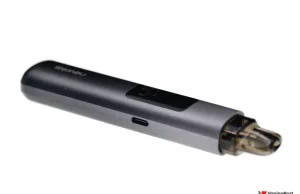The aim of the study is understanding how vape shops have adapted during the Covid crises, and how subsequently they could adapt to meet the needs of different smokers. “We are exploring how vape shops adapted their usual service (e.g., moved online), if at all, during the covid-19 outbreak. We are interested in this because we would like to create an understanding of how vape shops can adapt to meet the needs of different smokers.”
The goal is to survey as many staff from vape shops as possible, in order to be able to build an accurate picture of how the services have adapted and evolved during the crises. The researchers are particularly interested in finding out “what types of specific changes were made for vulnerable groups, how social distancing was managed as well as the general impact on the ‘health’ of the company.”
Anyone who works in a vape shop in England, is welcome to participate and should they so, would be able to withdraw from the study at any stage. “Taking part will take less than 10 minutes and is anonymous, (and) you do not have to answer every question. Your participation is voluntary, and you are free to withdraw at any time.”
Disclosed data will remain anonymous
Personal and organisational details provided by participants, will be kept strictly confidential and can only be viewed by members of the research team, therefore no such details will not be linked to the data or any other information provided.
Subsequently, the final anonymised data will be kept for at least 10 years, and may be shared only on academic open access platforms to ensure full transparency, aid peer review and allow others to make use of important data for re-analysis.
Moreover, the anonymous results of the study may be shared with researchers, public health bodies, charities and other researchers, and may be published in open access journals and spoken about at conferences.
The study has been approved by the Faculty of Medicine and Health Sciences Research Ethics Committee at the University of East Anglia (ref 2019/20-133).
Podcast: Latest Primary Results; Why Biden Will Win; Coronavirus Impact On Smoking and Vaping




![Recent Conference Urged Nations Worldwide to “Quit [Smoking] Like Sweden”](https://www.vapingpost.com/wp-content/uploads/2024/04/vape-conference-238x178.png)


![Recent Conference Urged Nations Worldwide to “Quit [Smoking] Like Sweden”](https://www.vapingpost.com/wp-content/uploads/2024/04/vape-conference-100x75.png)




